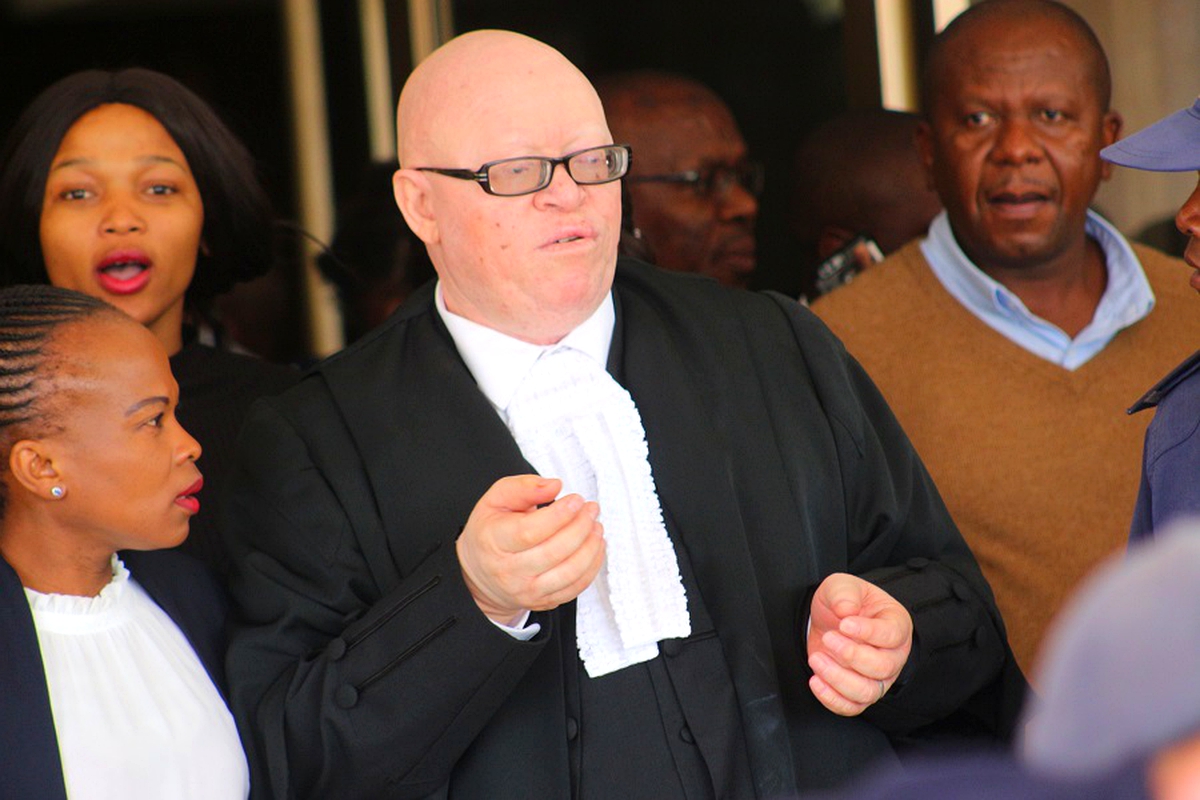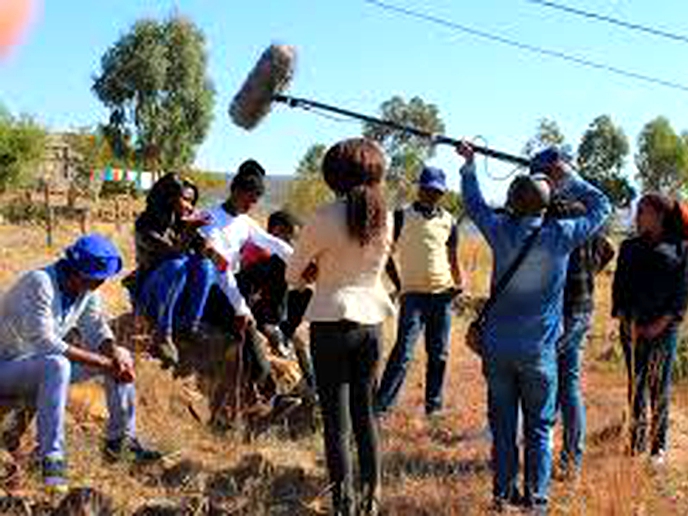The President of the Court of Appeal Dr Kananelo Mosito KC has urged Acting Chief Justice 'Maseforo Mahase to convene a brief joint sitting with Justices of the Court of Appeal in order to share views on judicial reforms. Dr Mosito made the suggestion on Monday this week during the opening of the Court of Appeal's 2019 session and explained that this year's sitting takes place at a crucial time when Lesotho is engaged in constitutional and judicial reforms. The opening comes shortly after the Law Society of Lesotho and other stakeholders in the judiciary worked hard to ensure that the court’s April sitting that failed owing to lack of finances, eventually sits and hears appeals before it. Delivering his opening speech, Dr Mosito welcomeed all stakeholders in the court’s sitting that was supposed to have been held in April but could not because of, among other issues, lack of finances. Dr Mosito explained that it has been a mammoth task arranging for this court’s sitting to become a reality and indicated that all the blame for the court failing to sit in April should not be directed to the court’s administration but somewhere within the government. He also indicated that the court unreservedly appreciates the Law Society of Lesotho for the efforts it made in ensuring that the court resumes its business. Speaking at the same event, President of Law Society of Lesotho Advocate Tekane Maqakachane said in any democracy, it is a fundamental principle based on the separation of powers that policy directions and choices are matters within the executive branch of government and that the role of parliament is that of oversight over the executive. He explained that whenever disputes arise, it is the judiciary that is called upon to decide through the application of the law and that it is not for the judiciary to make policy choices and to decide on polycentric policy issues. He further explained that it is not the judiciary that should run the state but to police the constitutional boundaries and to enforce the constitution without fear or favour. Advocate Maqakachane indicated that political questions are better addressed and resolved by other branches of government and not by the judiciary. He also indicated that Lesotho’s courts are precariously sitting at the intersection of law, conflict and politics and their intervention is likely to render them agents and tools of law-fare. He also commented on a wide range of issues including the colour and emblem contest between the Lesotho Congress for Democracy (LCD) and Democratic Congress (DC), on whether the distribution of emergency food supply by the Disaster Management Authority (DMA) through members of parliament constituted political patronage, the pin-pong of the All Basotho Convention (ABC) saga case between the High Court and the Court of Appeal, the wool and mohair saga, as well as the stagnation of yet another ABC case in the High Court. Advocate Maqakachane addressed the success or failure by Lesotho’s judiciary in navigating polycentric policy issues or political questions. He also highlighted that it is not the justiciability of these issues and the competence of Lesotho’s courts to resolve them that the Law Society is concerned about, but the consequences of the lack of preparedness and priority in the handling of these issues and questions on the judiciary as an institution, the law-fare’s deleterious effect on the values and aspirations of the proper administration of justice, the rule of law and constitutionalism which the Law Society hold dear, and sociological legitimacy towards the judicial system as a whole. “While the Law Society prides itself in the hallowed principle of the separation of power and the independence of the judiciary, the buffer between the executive and the judiciary that is the Judicial Service Commission (JSC), is so thin, the JSC is made up only of four members,” Advocate Maqakachane added. He also divulged that the situation facing Lesotho’s judiciary is worsened by lack of financial support by the government and that sufficient financial support of the judiciary by the state is a constitutional mandate. As to how much funds should be directed in that direction is a policy or political question, he noted. Meanwhile, the court resumed with the hearing of appeals on Tuesday this week and will be heard throughout the month until on Friday, May 31, 2019 when judgments will be delivered. The court will in this session deal with 22 civil appeals and one criminal appeal. The court’s panel comprises, among others, the Court’s President Dr Kananelo Mosito KC, Acting Chief Justice ‘Maseforo Mahase and Acting Judges of the Court of Appeal Dr Philip Musonda and Moses Chinhengo. Dr Mosito explained that the Justices are very experienced professionals in this area as they have vast experiences in their own countries and elsewhere. He also expressed hope that this will allow them to discuss in-depth the issues and items that they have with a view to finding solutions and chart the way forward for the contemplated judicial reforms. He further suggested that a joint meeting of the judiciary and the legal profession be organised as soon as possible to share their views on the judicial and legal reforms under considerations. Apart from the reforms, Dr Mosito spoke about the judiciary and highlighted that the efficacy of judiciary depends on the calibre of the judges. He explained that the judges’ legal philosophies, their judicial styles, their integrity and efficiency, as well as their efficient and honest administration of justice are critical to effective adherence to constitutionality and good governance in the country. He also noted that the judiciary is the only arm that can nullify an act by both the executive and the legislature on grounds of unconstitutionality and that this pivotal role of the judiciary calls for a close study of the institution in Lesotho's context; it's judicial process and the entire machinery of justice to ensure that law in the country is respected. He further noted that any country whose judiciary is subjected to any form of control from the executive arm of government or any other individual or group of persons would be heading towards its doom. Meanwhile, Advocate Maqakachane called upon the government of Lesotho to discharge its democratic mandate of not only ensuring the financial independence of the judiciary but also ensuring that sufficient funds and resources sustain the effective functioning of the judiciary as a whole. His statement was centred on the theme: “Lawfare: Lesotho’s judiciary as a site for polycentric and political questions struggle: Can we survive the migration of politics to the courts?” as well as the reasons surrounding the suspension of the Court of Appeal and the problems at the magistrates’ courts. Advocate Maqakachane explained that appropriate means and concrete and credible measures must be taken by the government to ensure that the grievances of the magistracy are resolved. He disclosed that the Law Society is currently undertaking the study on the judiciary in Lesotho and will take appropriate measures based on the report to ensure that the government discharges its constitutional mandate towards supporting the judiciary. He further added that systemic lack of funding for the judiciary is antithetical of the democratisation process and development. Shifting his focus on the Attorney General’s office, he invited the Attorney General to consider for the first time legal measures geared towards ensuring sufficient financial support for the judiciary by the government as well as ensuring the protection of the courts from unjustified attacks by members of the public as well as legal practitioners. Advocate Maqakachane explained that this is the duty of the office of the Attorney General to be exercised either by him directly or through relator claim where an interested civil society organisation may be authorised to institute a claim in the name of the Attorney General. He further indicated that while the Attorney General is the legal advisor of the state, that is a secondary role as the key function of the Attorney General is the defence of the constitution and this function is supported by section 98 (2) of the constitution that reads: “It is the duty of the Attorney General to take the necessary legal measures for the protection and upholding of this constitution and other laws of Lesotho.” Talking to members of the society, Advocate Maqakachane revealed that while the constitution allows freedom of expression, including the freedom to criticise the judiciary, the society cannot allow such freedom to be expressed in the manner constituting the vilification, scandalisation and disparagement of the courts and judicial officers without adopting the appropriate means. He also indicated that the society will not allow the thin line between militancy and insolence to be crossed willy-nilly by its members who have taken oath to uphold the rule of law and to participate in the administration of justice. Lena
news
May 24, 2019
6 min read
Mosito urges judges to address judicial reforms

Enjoy our daily newsletter from today
Access exclusive newsletters, along with previews of new media releases.
Tailored for you



